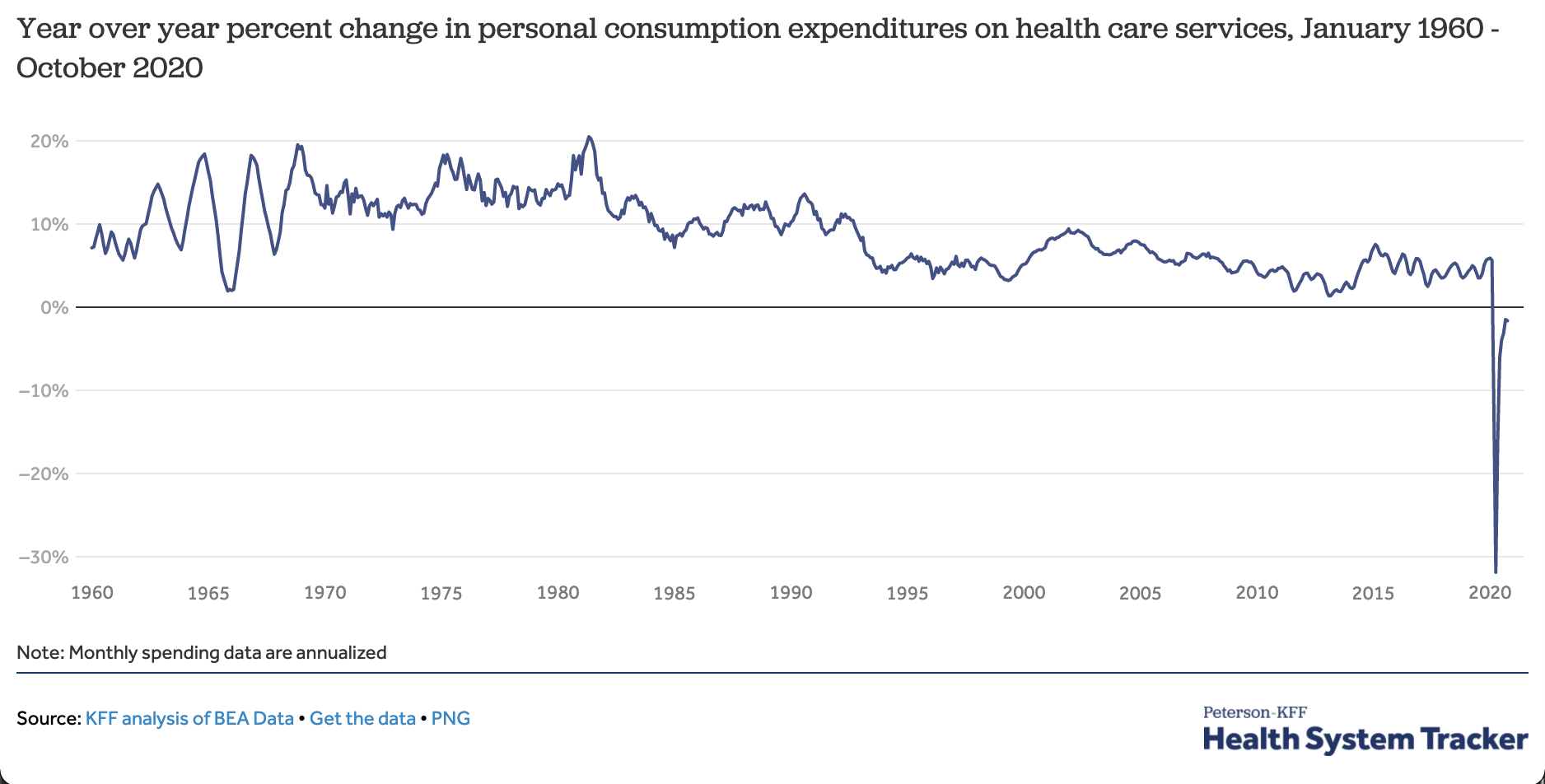COVID-19 Is Causing Health Spending To Go Down
A shorter version of this column has been published by Axios.
We have never seen a year in which health spending actually goes down. Now the seemingly impossible is happening, but the reason – COVID-19 – makes it both anomalous and more tragic than a cause for celebration.
+ Year-to-date spending on health services is down about 2% from last year. Health spending for the calendar year may end up lower than it was in 2019.
+ Adding spending for drugs, which are less affected by COVID-19 and have not fallen, total health spending is still down by about 0.5% from last year.
+ At its low point in April when the pandemic first really hit, spending on health services had fallen an eye popping 32% on an annualized basis.
+ This is the first time expenditures for patient care have fallen year-over-year since data became available in the 1960s. The largest drop-offs were in outpatient care as people put off elective services or doctors offices and outpatient clinics shut down. Telehealth visits increased dramatically but did not make up all of the difference.
Spending and utilization have been recovering, but could fall again if the current winter spike in COVID-19 causes hospitals to fill up and defer non-COVID-19 care, and people again put off elective care.
We do not know what share of the spending and utilization skipped or delayed because of COVID-19 was necessary or unnecessary. There was a decline in cancer screenings and visits to manage chronic care but we also do not know if health outcomes suffered. These data will trickle in as studies are published, and will be critical to determining how much we can safely reduce health spending in the future.
Historically external shocks to the system like recessions have had a larger impact on utilization and health spending than anything we have been able to do about costs in the health system. But COVID-19 is different; it’s a double shock to health spending.
The COVID-19 economy, like any big recession, depresses utilization of health services because people have less money to spend for health care. But unlike typical recessions, COVID-19 also directly attacks the health system, filling up hospitals with COVID-19 patients, closing outpatient facilities and doctors offices, and causing people to defer or skip care for fear of becoming infected.
It may be a long time before we see a reduction in health spending like this again.

